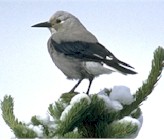 |
Rebellion
in Scotland
In order to quell a rebellion in the
north of Scotland, the English king issued a proclamation to all the rebel chiefs to
appear at a given place on or before the thirty-first of December, 1691, and take the oath
of allegiance to the king. Those who did not appear were to be treated as outlaws, liable
to execution as traitors to the crown. Although humiliating, it was useless to rebel with
such small numbers.
One by one gave way, and all had affixed their names to the paper except one. Mac Ian was
the leader of the smallest yet haughtiest tribe. He did not intend finally to resist, but
he hoped to be the last of the Scottish chiefs to submit. A day or two before the
thirty-first, he started. A severe snowstorm impeded his way, and he did not arrive till
nearly a week after the king's messenger had returned to London. A band of soldiers
immediately sought the Valley of Glencoe, and Mac Ian and his followers became victims of
his proud obstinacy.
How many in our day hazard their souls, as Mac Ian hazarded his life, by refusing to obey
the commands of the King of Kings!
William Moses Tidwell,
"Pointed Illustrations." |
 |


